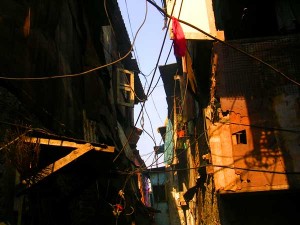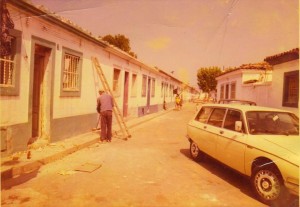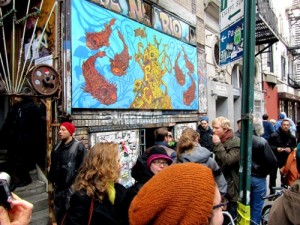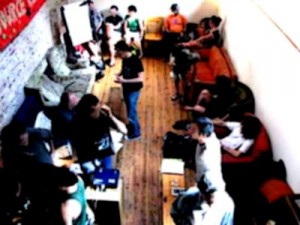
World Assembly of Inhabitants at Tunis WSF
From March 26th to 30th, in the frame of the Tunisian meeting of the World Social Forum, a World Assembly of Inhabitants (WAI) is taking place, organized by the International Alliance of Inhabitants, Habitat International Coalition and No-Vox networks. Here is the program of the WAI meeting; to prepare the WAI, the International Alliance of Inhabitants promoted the visual project Memories of inhabitants, compiling hundreds of interviews to activists for the right of housing in 4 continents. We add some reflections about the Forum itself, which was planned in time of generalized euphoria, but is now facing a much more complex reality: Altermundialism seeks new breath in Tunis, from the blog Tunisie Libre; WSF to blast austerity, Yasmine Ryan in Aljazeera; What I learned about feminism from a Moroccan men’s chorus, Maria Poblet in In these times; and One year after the revolution from Nawaat.…
 The Critical Mass is an “organised coincidence" of cyclists that periodically celebrate a collective bike ride in the streets; its purpose is to show to the society the great advantages that bicycles could provide to urban mobility. In the occasion of the 20th anniversary of the first Critical Mass in
The Critical Mass is an “organised coincidence" of cyclists that periodically celebrate a collective bike ride in the streets; its purpose is to show to the society the great advantages that bicycles could provide to urban mobility. In the occasion of the 20th anniversary of the first Critical Mass in  Who is not frightened by the idea of the unstoppable growth of cities in Asia and in the former "third world", or by the perspective (apocalyptical, though critically framed) of moving towards a planet of slums? But in the places closer to this phenomenon - for example in the popular neighborhoods of Mumbai, India - the idea of slum has been criticized
Who is not frightened by the idea of the unstoppable growth of cities in Asia and in the former "third world", or by the perspective (apocalyptical, though critically framed) of moving towards a planet of slums? But in the places closer to this phenomenon - for example in the popular neighborhoods of Mumbai, India - the idea of slum has been criticized 



